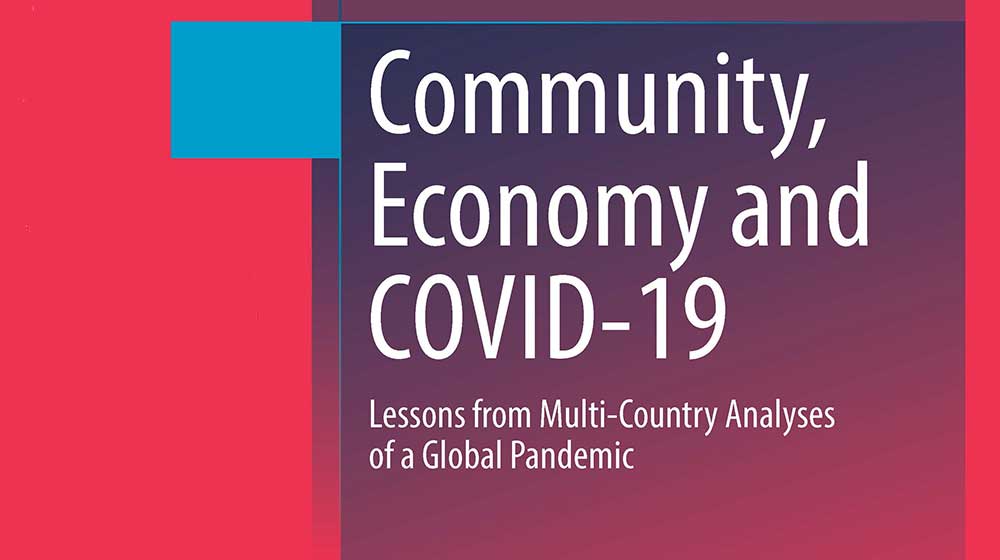Lessons from COVID-19

As COVID-19 spread around the world, each community, village, and country reacted differently. One Quinlan professor helped pull together a global team of leading scholars to analyze the pandemic response in the hopes of facilitating the quality-of-life and well-being of communities around the world.
“We knew that the pandemic was traumatic and likely to be deadly on a massive scale, and it could lead to violence and other crises in many nations,” says Clifford Shultz, professor and Charles H. Kellstadt Chair of Marketing at the Quinlan School of Business. He and fellow scholars Don Rahtz and M. Joseph Sirgy set out to analyze the pandemic response, systemically and internationally.
Their work, “Community, Economy, and COVID-19: Lessons from Multi-Country Analyses of a Global Pandemic,” was published in August 2022.
“This tome can be very impactful in classrooms, and for government policy and business practice,” says Shultz. “It will help others be better prepared for the next pandemic, or even other crises, such as an earthquake or tsunami.”
Key takeaways
Below are several key takeaways from the book:
People contribute to crisis
People's behaviors enabled the virus to spread and must be accounted for in future crisis responses, says Shultz. During the height of COVID-19, an unfortunately large number of people didn’t trust the data and the science, and did not consistently take recommended actions, such as masking, distancing, or vaccinations. This enabled continued spread of COVID-19.
Global perspective is needed
The entire world has been affected by COVID-19. “No one was alone in the loss and tragedy the virus has caused,” says Shultz. “We can, however, learn from each other and hope to apply this knowledge to future events.” To that end, in the book, scholars from 28 countries on six continents analyzed the local pandemic response and offered policy recommendations for restoring the health, safety, and multidimensional wellness of communities, and for decreasing the likelihood and impact of future crises.
Catalytic institutions are critical
In all the countries analyzed, catalytic institutions, including government, business, and NGOs, were critical for mitigating and controlling the COVID-19 pandemic. To be successful, these catalytic institutions needed to constructively engage with other institutions and individuals, and focus on the greater good instead of their own interests to facilitate coordinated institutional policy and behavior.
An applied framework
The analysis was guided by a systemic framework for assessing and ultimately facilitating individual quality-of-life and the well-being of communities, countries, and regions. The Shultz, Rahtz, and Sirgy framework draws from the marketing literature, social and health sciences, and other disciplines to enable systemic and multistakeholder understanding, which in turn sparks the development and implementation of appropriate mitigations.
“This is an opportunity to affect humanity, meaningfully and on a large scale,” says Shultz. “By assembling the contributing scholars, making needed connections, and discovering and sharing best practices, we have tried — and are still trying — to have an impact on policy change to reduce fatalities, suffering, and economic costs, and to expedite systemic recovery while improving people’s lives.”